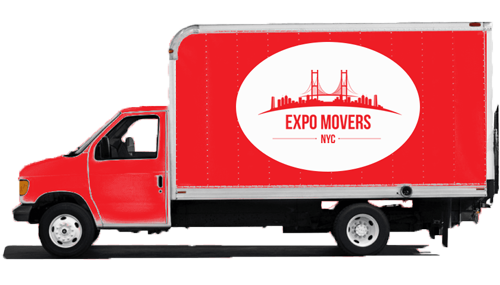When you have a few things to store, it makes sense to rent a storage unit near your home or business. This investment provides a safe and convenient way to protect your assets while keeping your primary living or working space free of clutter.
What happens if you don’t have enough items to fill a storage unit? One way to limit your costs is to share that space with another person or business.
Although the smallest units are typically 5×5 feet in size, you might not have enough items to maximize that space. In NYC, the cost of having storage assets can also strain the budget. Renting with someone else to have a storage “roommate” can be the compromise you need for the outcomes you want.
What Are the Pros and Cons of Sharing a Storage Unit?
When you rent a storage unit with someone, it shouldn’t be with a stranger. If you have a friend or someone in your family who also needs extra space, you can have a winning arrangement.
Not only are you splitting the space, but you are also halving the rental costs for your professional storage solutions.
That’s one of the benefits that come when you start sharing a storage unit. Here are some of the others that you’ll want to consider, along with the disadvantages that you might need to manage in this situation.
| List of the Pros of Sharing a Storage Unit | List of the Pros of Sharing a Storage Unit List of the Cons of Sharing a Storage Unit |
- It’s a fast and practical way to get the storage space you need for residential or commercial purposes.
- If you select a long-term storage solution for your needs, many facilities provide climate control options for you to consider.
- It can offer more flexibility. If you don’t need long-term storage solutions, the other “roommates” can find someone else when you’re ready to leave.
- Many facilities provide 24-hour access to your belongings without compromising the security of the facility.
- You can select from several size options, ranging from a walk-in closet (5x5 feet) to something that can manage a four-bedroom home (10x30 feet).
- Some storage facilities will issue keys to any or all authorized parties that the person on the paperwork says can access the unit. You might be asked to show identification before having one offered to you in a shared situation. When you share a storage unit with others, everyone must pay an equal amount for the rental cost. If someone doesn’t hold up their end of the bargain, you might need to cover the deficit or risk losing your items.
- Most professional storage facilities only rent their units to one individual, business, or family. The person on the paperwork is the one who is ultimately responsible for what happens.
- If you want to protect yourself legally as the named party on a shared unit, you’d need an outside contract that outlines the terms and conditions everyone follows.
- Other people will have access to the unit, which means they will be around your possessions.
- It can be challenging to find one specific item in a large unit, especially when sharing it with other people.
- Some facilities might only allow one key to be issued for the unit. You’ll need to make a schedule for visitation in that circumstance while ensuring everyone knows who has it.
|
- When you share a storage unit with others, everyone must pay an equal amount for the rental cost. If someone doesn’t hold up their end of the bargain, you might need to cover the deficit or risk losing your items.
- Most professional storage facilities only rent their units to one individual, business, or family. The person on the paperwork is the one who is ultimately responsible for what happens.
- If you want to protect yourself legally as the named party on a shared unit, you’d need an outside contract that outlines the terms and conditions everyone follows.
- Other people will have access to the unit, which means they will be around your possessions.
- It can be challenging to find one specific item in a large unit, especially when sharing it with other people.
|
What Can I Store in a Shared Storage Unit?

Although you can store most items safely in a storage unit, some things are banned or forbidden by local, state, or national laws. Facilities can set their own rules in most areas, which means you’ll want to contact the facility in question to know what you can keep there.
Some items shouldn’t be stored, even in a climate-controlled unit, because of their perishable nature.
As a general rule, you cannot store live animals, plants, or perishable food products in a storage unit. There could also be limits on unregistered vehicles, hazardous materials, weapons, or ammunition.
Do You Need Professional Storage Solutions in NYC?
If you rent a storage unit with a friend and one of you isn’t responsible, the outcome could impact your relationship.
If you’re looking for professional storage solutions in NYC, Expo Movers has what you need. We provide temporary and long-term units that deliver the right amount of space your home or business needs to stay organized!
Contact us today to see how we can help you limit the costs of your storage needs.









